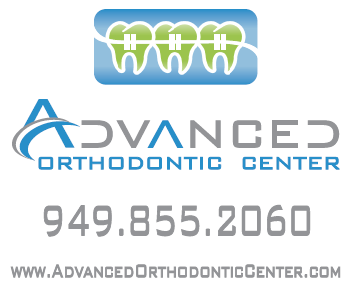Dental Retainers
The final phase of orthodontic treatment is called retention when the braces and wires are removed (and yes, it involves dental retainers). The purpose of retention is to maintain the corrected alignment of teeth achieved during the active phase of treatment. During active tooth movement, the gum and bone tissue around the teeth move or “remodel” to their new positions. Sometimes, the teeth may align more quickly than the soft and hard tissues around them remodel. Therefore, teeth may appear to be straight, but once braces are removed, teeth generally relapse quickly back to their original misalignment.
Retainers are used during this phase of treatment to keep the teeth straight and allow time for the soft and hard tissues around the teeth to remodel. Because human bodies are constantly changing, many patients will need retainers throughout life. The only method to maintain the alignment throughout life for many patients may be the consistent use of retainers.
Length of Dental Retainer Wear
Removable retainers such as Hawley-type and Vacuforms should be worn full time (20-24 hours) for 3-9 months. After that period, nighttime only wear is recommended.
Fixed or Permanent retainers should remain for at least 2 years or until growth has completed. Most patients end their adolescent growth spurt by the age of 18-25. After two years, the fixed retainer can be replaced by a removable retainer the patient just wears at night. Rather than change the fixed retainer to a removable retainer, many orthodontists that place fixed retainers will often leave the fixed retainer in as long as there are no problems associated with it.
Types of Retainers
There are three general types of dental retainers are Removable Hawley-type retainers, Removable Vacuform “Invisible” retainers, and Fixed or Permanent retainers. Each type has its strengths and weaknesses. Your doctor will discuss which type is best for you.
Removable Hawley-Type Retainers
Hawley-type retainers are removable retainers that clasp onto the teeth. Hawley-type retainers consist of a hard plastic that covers the tongue-side of the teeth combined with a wire in the front of the teeth that holds the teeth in place. It is the recommended appliance for patients that have undergone expansion and is very durable.
Removable Vacuform Retainers
Vacuform or “Invisible” Retainers are removable retainers that cover all teeth with a clear plastic. It is called a vacuform retainer because when it is made, a vacuum is used to suck the plastic onto the mold of the teeth. It is an excellent retainer in holding spaces closed and is a good cosmetic retainer option. Due to the thin esthetic plastic, this retainer deteriorates at a faster rate than other retainers and will need to be replaced more frequently.
Fixed / Permanent Retainers
Fixed retainers are customized wires that are bonded onto the backside of the front teeth. It is less bulky than other retainers. These retainers are excellent for maintaining the position of incisors at the end of treatment. Extra care must be taken to brush and floss between teeth to prevent future dental problems.
Maintenance and Cleaning
Food and bacteria can adhere to any retainers placed in the mouth just like your teeth. For removable retainers, please use a toothbrush to remove debris from the retainers. Soaking retainers in denture cleaner (Efferdent) or retainer cleaning solutions (Retainer Brite) will also help loosen debris. Never boil or microwave retainers as the plastic will melt and deform from its ideal shape. Flossing and brushing is the best method to clean fixed retainers.
Cost of Dental Retainers
Retainers can be misplaced or broken. Replacement costs for retainers vary based on the complexity and laboratory time needed to fabricate a new retainer. If you have misplaced or broken your retainer, call your orthodontics provider as soon as possible to have it replaced. If you wait too long, your teeth may shift and you may need braces again.

Interested in Dental Retainers? Contact us today!
Schedule a FREE CONSULTATION TODAY!
Call Us at 949.855.2060


